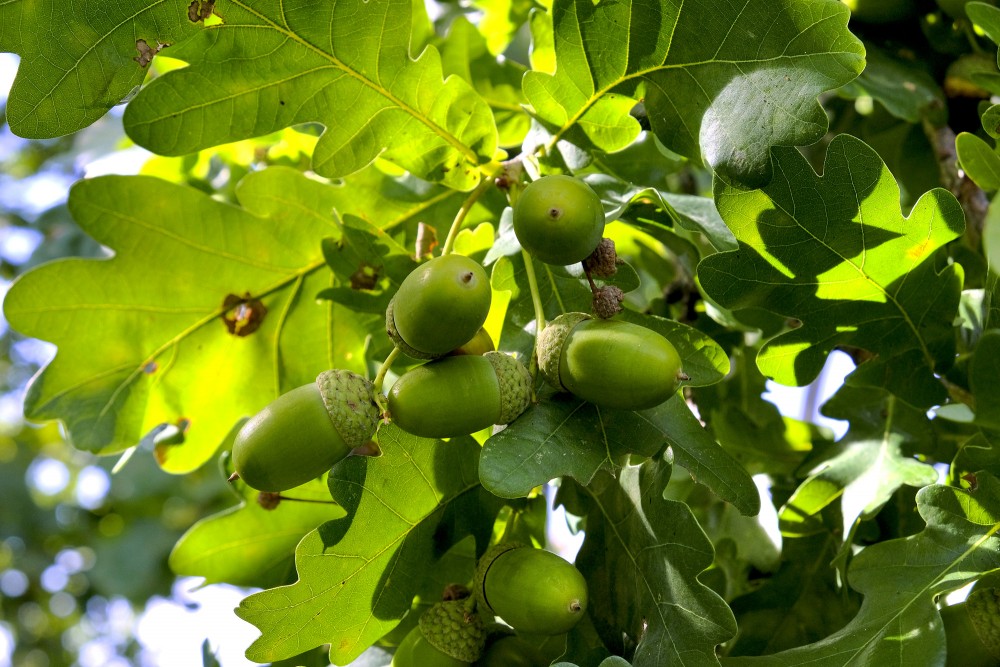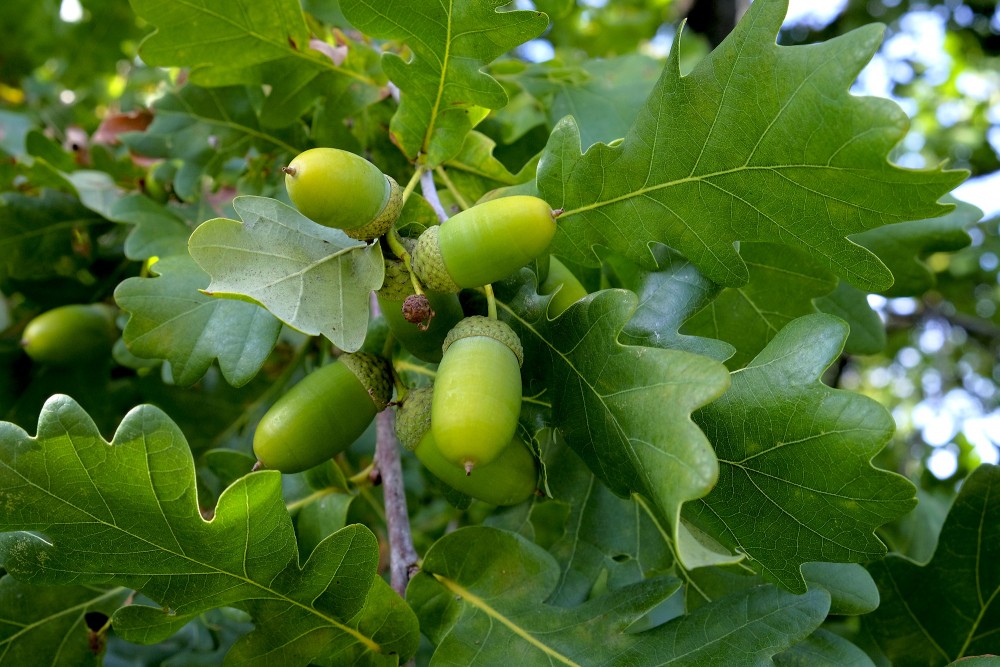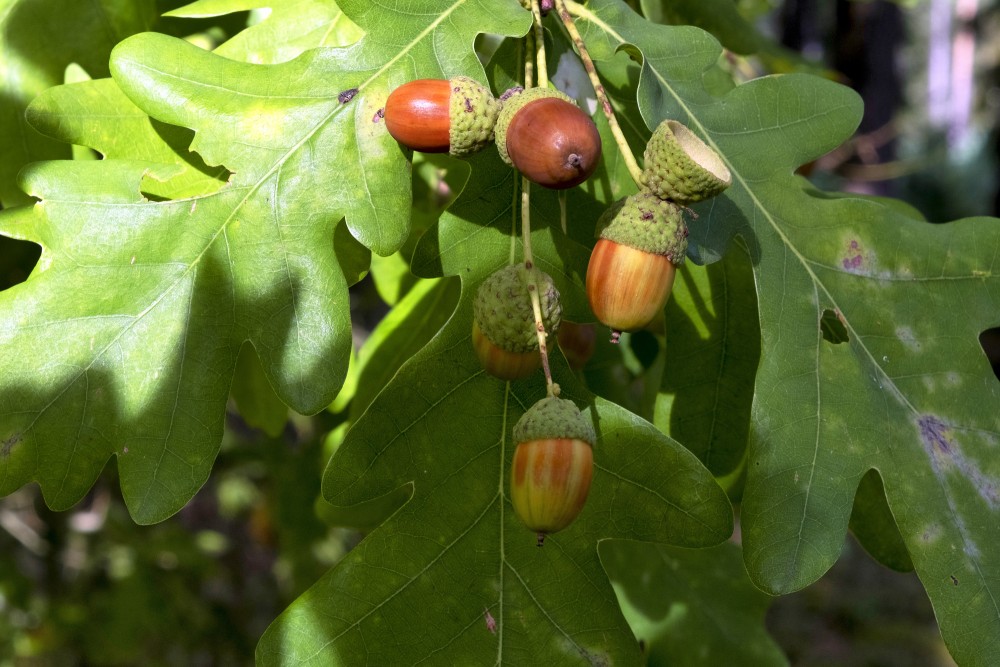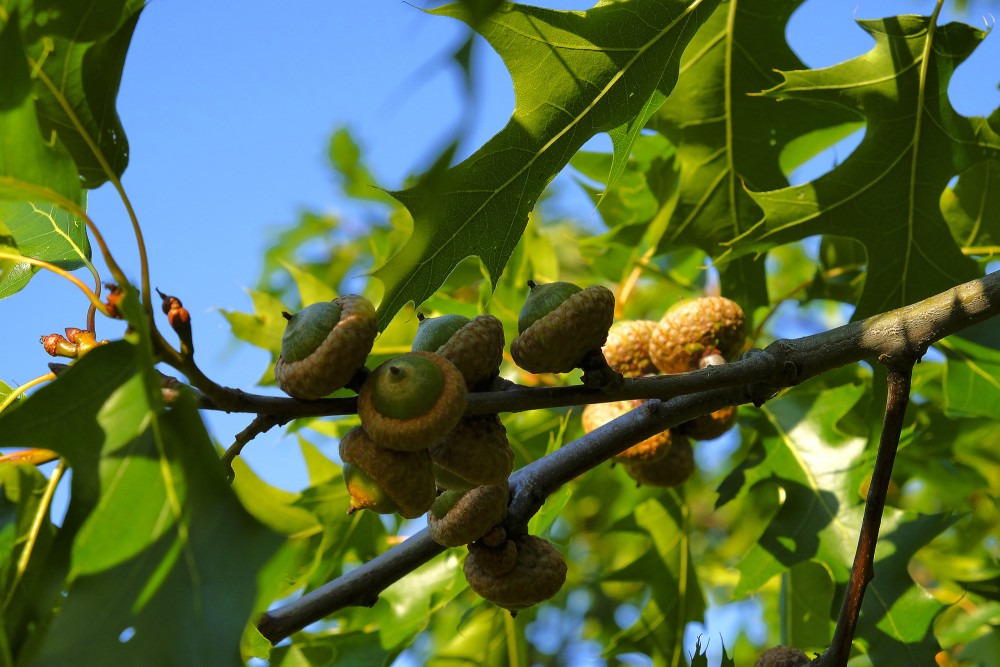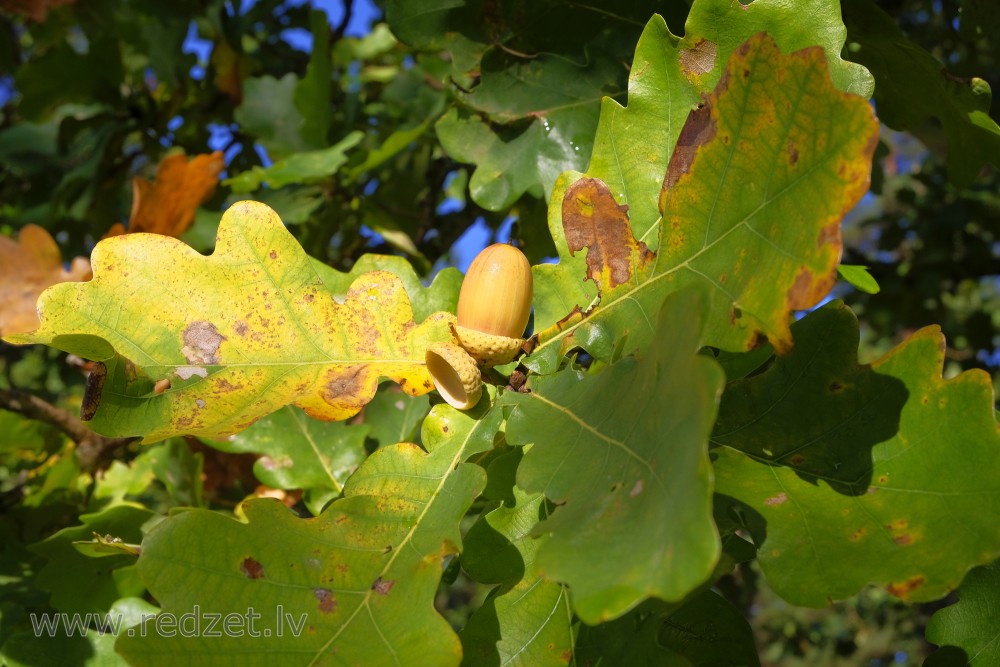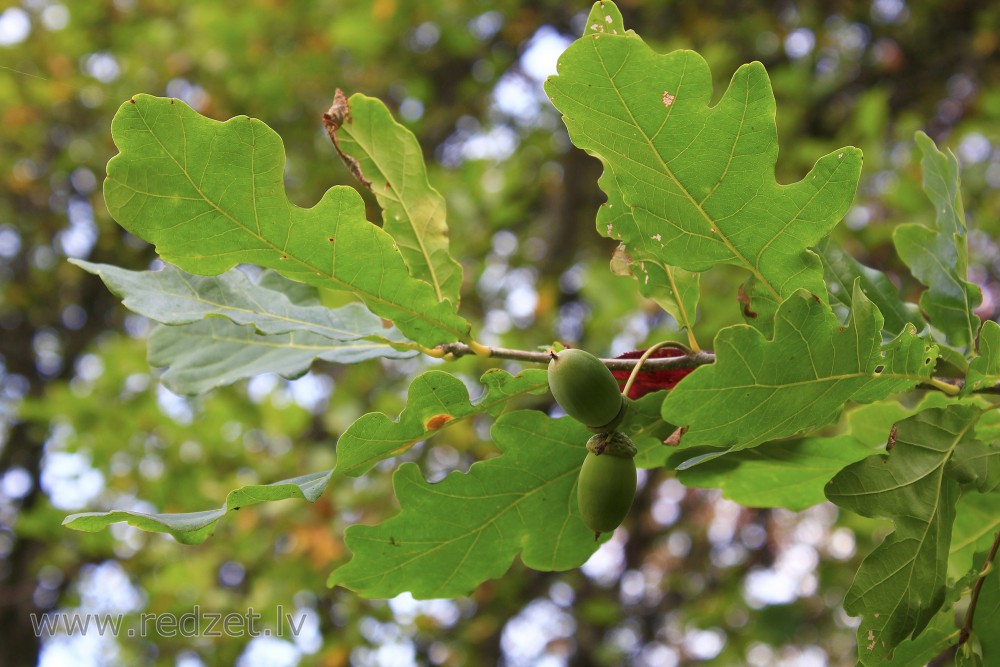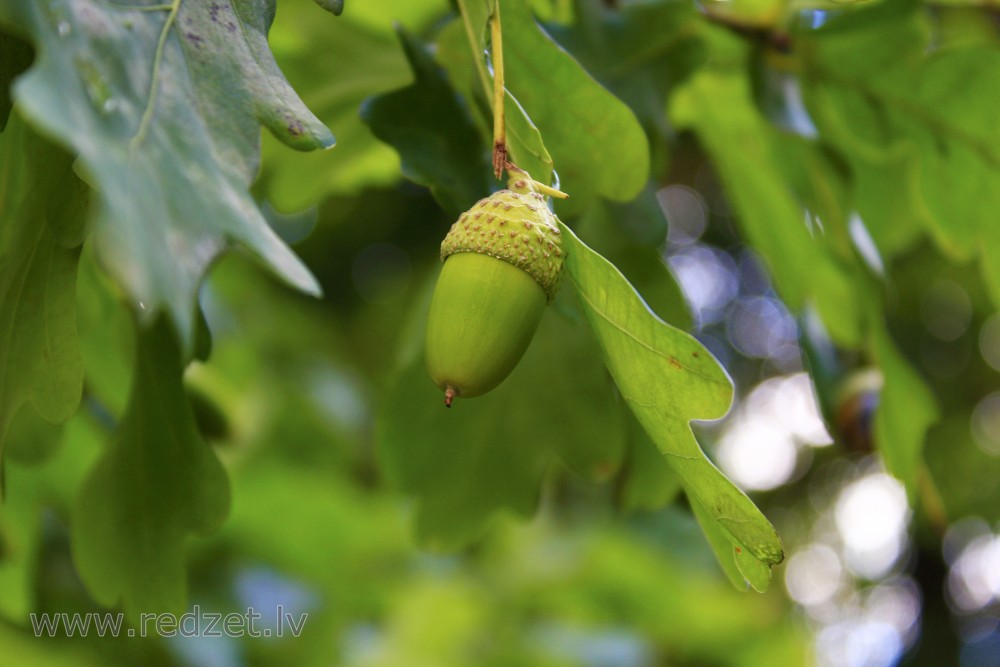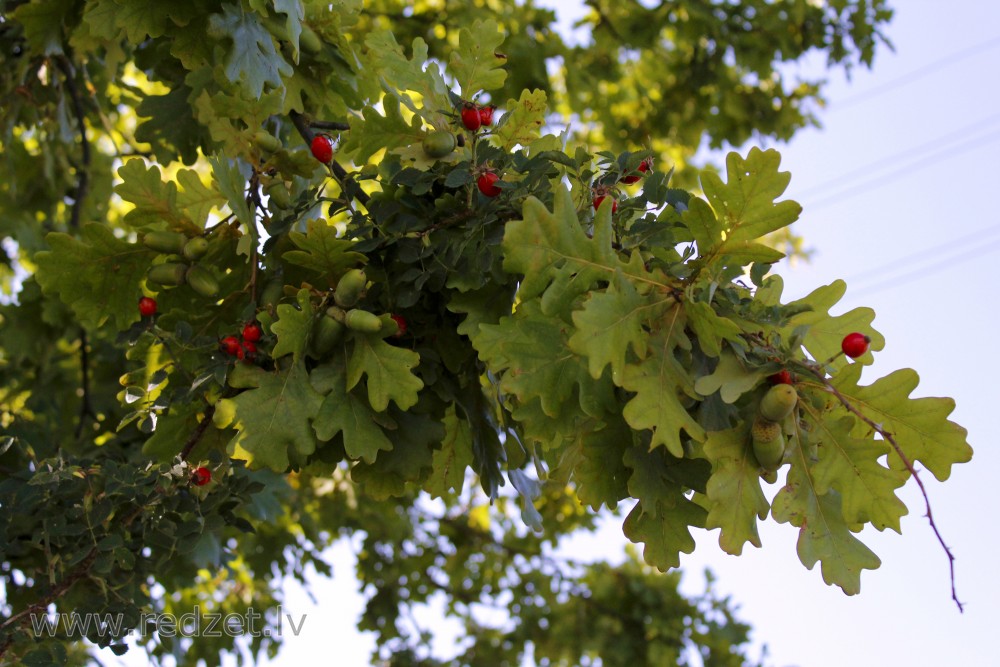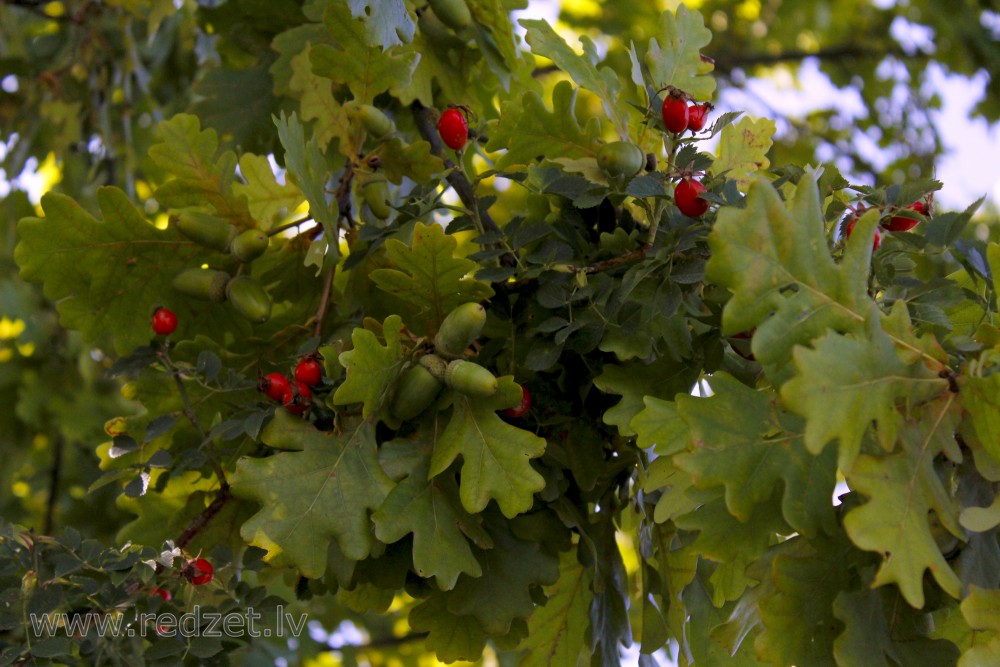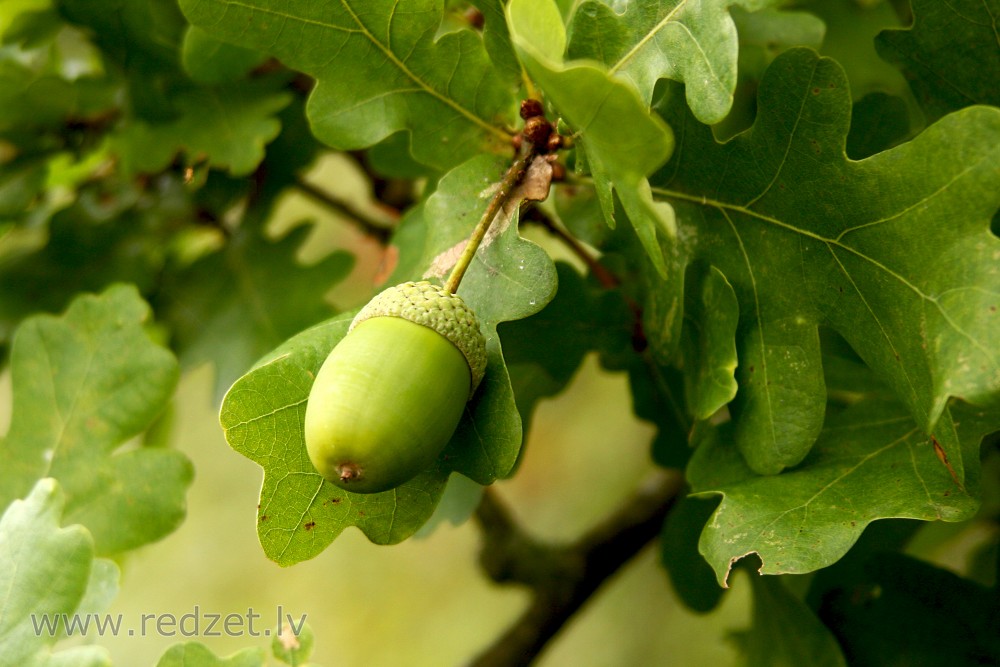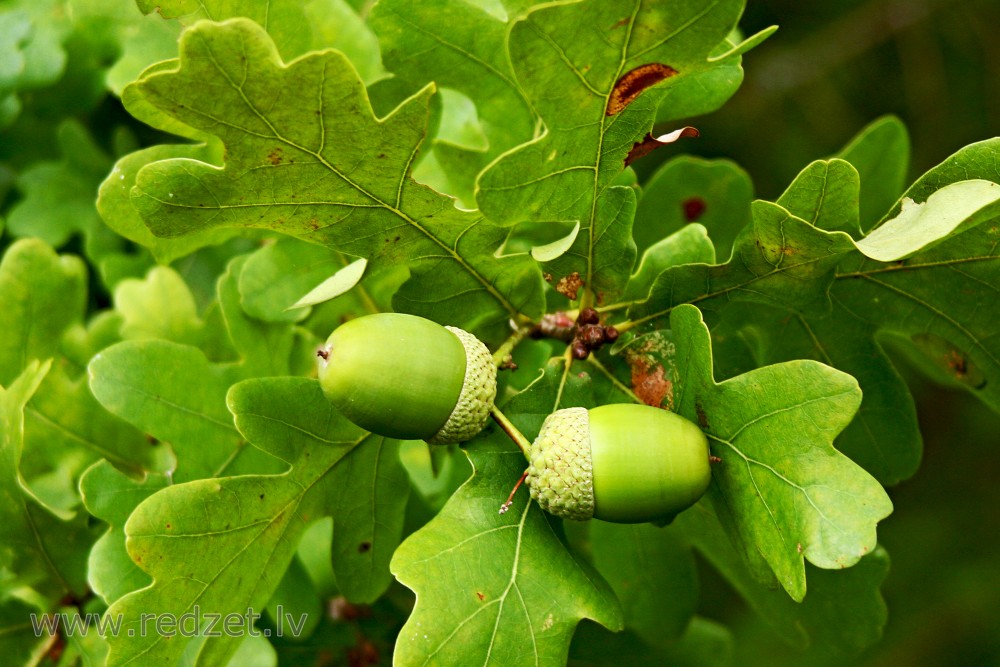Acorn
The acorn, or oak nut, is the nut of the oaks and their close relatives (genera Quercus and Lithocarpus, in the family Fagaceae). It usually contains a single seed (occasionally two seeds), enclosed in a tough, leathery shell, and borne in a cup-shaped cupule. Acorns are 1–6 cm (0.39–2.36 in) long and 0.8–4 cm (0.31–1.57 in) broad. Acorns take between 6 and 24 months (depending on the species) to mature; see the list of Quercus species for details of oak classification, in which acorn morphology and phenology are important factors.
Ecological role
Acorns play an important role in forest ecology when oaks are the dominant species or are plentiful. The volume of the acorn crop may vary widely, creating great abundance or great stress on the many animals dependent on acorns and the predators of those animals. Acorns, along with other nuts, are termed mast.
Wildlife that consume acorns as an important part of their diets include birds, such as jays, pigeons, some ducks, and several species of woodpeckers. Small mammals that feed on acorns include mice, squirrels and several other rodents.
Large mammals such as pigs, bears, and deer also consume large amounts of acorns; they may constitute up to 25% of the diet of deer in the autumn. In Spain, Portugal and the New Forest region of southern England, pigs are still turned loose in dehesas (large oak groves) in the autumn, to fill and fatten themselves on acorns. Heavy consumption of acorns can, on the other hand, be toxic to other animals that cannot detoxify their tannins, such as horses and cattle.
The larvae of some moths and weevils also live in young acorns, consuming the kernels as they develop.
Acorns are attractive to animals because they are large and thus efficiently consumed or cached. Acorns are also rich in nutrients. Percentages vary from species to species, but all acorns contain large amounts of protein, carbohydrates and fats, as well as the minerals calcium, phosphorus and potassium, and the vitamin niacin. Total food energy in an acorn also varies by species, but all compare well with other wild foods and with other nuts.
Acorns also contain bitter tannins, the amount varying with the species. Since tannins, which are plant polyphenols, interfere with an animal's ability to metabolize protein, creatures must adapt in different ways to use the nutritional value acorns contain. Animals may preferentially select acorns that contain fewer tannins. When the tannins are metabolized in cattle, the tannic acid produced can cause ulceration and kidney failure.
Animals that cache acorns, such as jays and squirrels, may wait to consume some of these acorns until sufficient groundwater has percolated through them to leach out the tannins. Other animals buffer their acorn diet with other foods. Many insects, birds, and mammals metabolize tannins with fewer ill effects than do humans.
Species of acorn that contain large amounts of tannins are very bitter, astringent, and potentially irritating if eaten raw. This is particularly true of the acorns of American red oaks and English oaks. The acorns of white oaks, being much lower in tannins, are nutty in flavor; this characteristic is enhanced if the acorns are given a light roast before grinding.
Tannins can be removed by soaking chopped acorns in several changes of water, until the water no longer turns brown. Cold water leaching can take several days, but three to four changes of boiling water can leach the tannins in under an hour. Hot water leaching (boiling) cooks the starch of the acorn, which would otherwise act like gluten in flour, helping it bind to itself. For this reason, if the acorns will be used to make flour, then cold water leaching is preferred.
Being rich in fat, acorn flour can spoil or molder easily and must be carefully stored. Acorns are also sometimes prepared as a massage oil.
Acorns of the white oak group, Leucobalanus, typically start rooting as soon as they are in contact with the soil (in the fall), then send up the leaf shoot in the spring.
en.wikipedia.org
